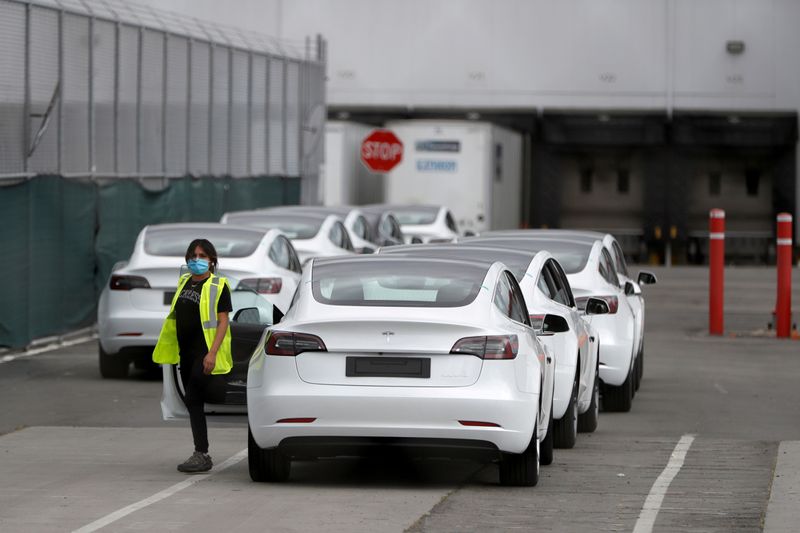(Reuters) - More automakers signed up to access Tesla (NASDAQ:TSLA)'s electric-vehicle charging infrastructure across the United States, taking the Elon Musk-led company's superchargers closer to becoming the industry standard.
Texas has approved a plan to require EV charging companies to include Tesla's plug if they want to be eligible for federal funds.
Tesla's North American Charging Standard is more widely available and reliable than rival charging network CCS, which is backed by automakers such as Volkswagen (ETR:VOWG_p) and Hyundai Motor (OTC:HYMTF).
Here is a list of the companies adopting NACS:
Company Type Announcement
Ford Motor (NYSE:F) Co Automaker May 2023
General Motors (NYSE:GM) Automaker June 2023
Rivian (NASDAQ:RIVN) Automotive Automaker June 2023
Volvo (OTC:VLVLY) Cars Automaker June 2023
Polestar (NASDAQ:PSNY) Automaker June 2023
Mercedez-Benz Automaker July 2023
Nissan (OTC:NSANY) Automaker July 2023
Honda Motor Co (NYSE:HMC) Automaker Sept 2023
Jaguar Automaker Sept 2023
Hyundai Motor Co Automaker Oct 2023
Kia America Automaker Oct 2023
SK Signet Charger maker June 2023
ChargePoint (NYSE:CHPT) Holdings Charger maker June 2023
Blink Charging (NASDAQ:BLNK) Charger maker June 2023
Tritium DCFC Charger maker June 2023
EVgo (NASDAQ:EVGO) Charger maker June 2023
ABB Inc Charger maker June 2023
Wallbox (NYSE:WBX) Charger maker June 2023
Electrify America Charger maker June 2023
Fisker (NYSE:FSR) EV developer August 2023
List of U.S. states that have either mandated Tesla's charging tech or plan to:
U.S. states Approval
Texas Texas approved plans to require
companies to include Tesla's
technology in EV charging stations
to be eligible for federal funds
despite opposition.
Kentucky Kentucky mandated Tesla's plug for
state-backed charging stations,
according to documents reviewed by
Reuters.
Washington Washington state plans to require
EV charging companies to include
Tesla's plug if they want to be
part of a state program to
electrify highways using federal
dollars.
Florida Florida will mandate NACS one year
after standards body SAE
International, which is reviewing
the technology, formally recognizes
it.
